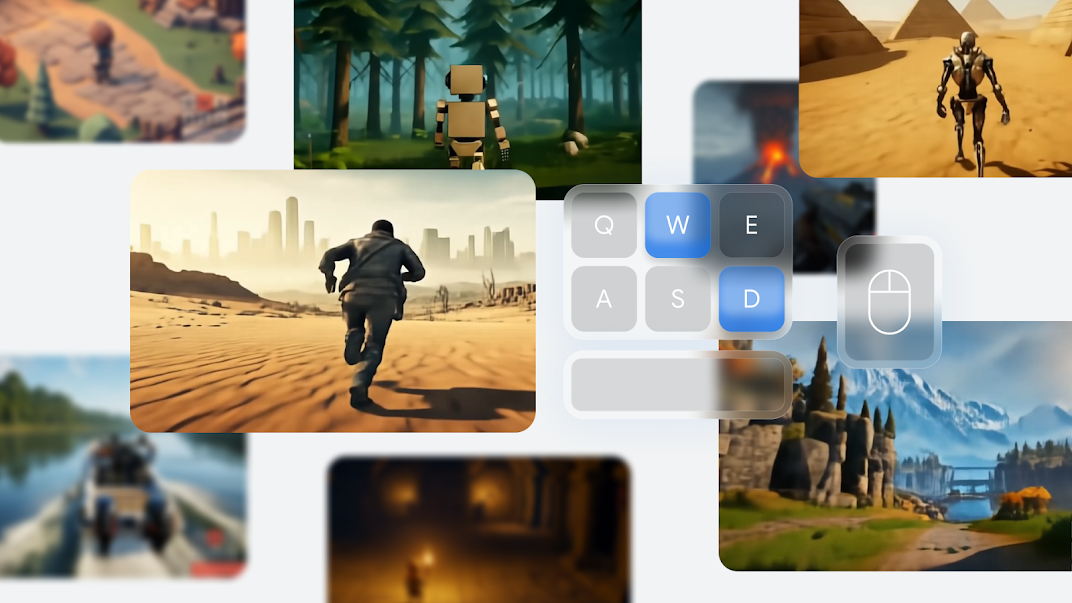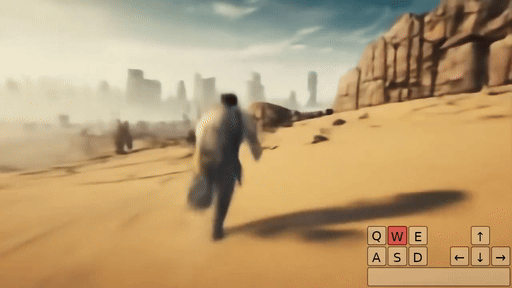
Google DeepMind, a leader in AI innovation, has unveiled Genie 2, a groundbreaking tool capable of creating limitless, diverse 3D environments for training and evaluating AI agents.
Jack Parker-Holder, research scientist at DeepMind, today announced the cutting-edge foundation world model, that can generate playable games based on a single text prompt, controllable by humans or AI using standard inputs like a keyboard and mouse.
Genie 2 represents a significant leap forward in creating adaptable training grounds for AI, enabling advancements while opening the door to new possibilities for gaming and interactive experiences.
Why games matter in AI research
Introducing 🧞Genie 2 🧞 - our most capable large-scale foundation world model, which can generate a diverse array of consistent worlds, playable for up to a minute. We believe Genie 2 could unlock the next wave of capabilities for embodied agents 🧠. pic.twitter.com/AfL3EbOMeBDecember 4, 2024
For decades, games have served as a cornerstone for AI research. Their immersive and controlled nature, along with the measurable challenges they present, provide ideal environments for testing and advancing AI. From mastering Atari games in the early days of AI development to AlphaGo's world-changing victories in Go and AlphaStar's domination in StarCraft II, DeepMind has continually demonstrated the potential of games as an AI proving ground.
However, the progression toward training general embodied agents — AI that can learn to interact with the physical and virtual world in versatile ways — has faced a significant roadblock: the availability of varied training environments.
Traditional training tools lack the variety and depth required to prepare AI agents for real-world complexity. Genie 2 aims to solve this problem by generating an unlimited curriculum of interactive worlds through gaming.
What makes Genie 2 different?

Genie 2 stands apart due to its ability to create highly customizable games on demand. Using a simple input image as a prompt, the system can craft playable worlds that adapt to specific training or gameplay needs. This flexibility allows AI researchers to expose agents to a never-ending stream of challenges, helping them develop skills that are transferable to real-world scenarios.
Remarkably, Genie 2 environments can be controlled by both humans and AI agents, making it a valuable tool not just for AI training but also for human evaluation and interaction. This dual functionality has the potential to revolutionize how we test and refine AI systems, merging human creativity with AI's problem-solving possibilities.
For gamers, the tech behind Genie 2 hints at a future where in-game environments are more dynamic, personalized, and immersive than ever before. Imagine video games that adapt to your skill level or preferences in real-time, providing a truly tailored experience.
For developers, Genie 2 represents a powerful resource for innovation. The ability to rapidly prototype and test interactive worlds could streamline game development workflows and lead to more creative games.
AI training and beyond

One of Genie 2's most exciting implications is its ability to facilitate general agent training. Unlike specialized agents, which excel at single tasks (e.g., playing chess or answering trivia), general agents can adapt to a wide variety of challenges, much like humans. By exposing these agents to new environments, Genie 2 equips them to tackle complex, real-world scenarios where adaptability and versatility are crucial.
In addition to advancing AI research, Genie 2 paves the way for entirely new workflows in game development and interactive prototyping. Developers can use Genie 2 to quickly create unique, playable experiences, reducing the time and cost of traditional design processes. For indie developers, this could mean more time spent refining gameplay mechanics and less time building environments from scratch.
The implications extend far beyond gaming. Genie 2 could serve as a platform for creative innovation in virtual reality, simulation, and robotics. For example, robots could train in gaming environments generated by Genie 2 to learn how to navigate unfamiliar terrains or interact with objects in new ways. Similarly, virtual assistants could refine their ability to understand and respond to real-world tasks by practicing in these environments.
Final thoughts
DeepMind’s focus on games as a training ground for AI isn’t just about creating better agents — it’s about pushing the boundaries of what's possible in both AI and gaming. Genie 2 builds on the legacy of tools like AlphaStar by not only solving immediate training bottlenecks but also reimagining how we approach the creation of interactive virtual worlds.
While Genie 2 offers groundbreaking potential, it also raises important questions. Training AI agents in virtually infinite environments can amplify their use cases but ensuring that these capabilities are applied ethically is vital. As AI continues to evolve, developers and researchers must address concerns around misuse, fairness, and transparency.
DeepMind has consistently emphasized ethical AI development, and Genie 2 appears to be no exception. The tool provides a safe and controlled environment for testing, making it a valuable resource for refining AI agents before they interact with the real world.
Genie 2 is a bold step forward in AI and gaming, offering endless possibilities for training generalist agents while reimagining how gaming environments are created and explored.







